Constantin Dobrogeanu-Gherea
One hundred years ago, Constantin Dobrogeanu-Gherea, the most important Marxist thinker of the 19th century, was passing away in Bucharest.

Steliu Lambru, 10.08.2020, 13:05
One hundred years ago, Constantin Dobrogeanu-Gherea, the most important Marxist thinker of the 19th century, was passing away in Bucharest. His real name was Solomon Katz and he lived a very adventurous life. He was born in 1855 in Slavianka, near Ekaterinoslav, today’s Ukraine, to a family of Jewish merchants. The Katz family was part of the Russian society’s middle class. His brother was a doctor and his father owned a beer factory near Ekaterinoslav. He attended the faculty in Harkov and, during his student years, he had connections with the Russian revolutionary movement with strong anarchist tendencies. In 1874 he took part in a movement that aimed at propagating the revolution among peasants and workers, through students. Chased by the tsarist police, he fled Ukraine for Romania.
From Romania he went to Switzerland, where he got in touch with the Russian revolutionary groups. He returned to Iasi, Romania and started smuggling revolutionary literature into the Russian Empire. Gherea adjusted pretty well to the Romanian space and became a Romanian citizen in 1890, at a time when citizenship was conditioned on being an Orthodox Christian. He took the name of Constantin Dobrogeanu-Gherea after he became a literary critic and one of the founders of the Romanian Social Democratic Workers’ Party, in 1893.
Professor Calin Cotoi of the Bucharest University tells us more about Dobrogeanu-Gherea: “He had a very interesting life. At one point, he disappears, being kidnapped by the Russian secret police and taken to Siberia. He escapes through Norway and returns to Romania. He is a larger than life adventurer, to say so. After this episode, he gives up the anarchist perspective and becomes one of the most important representatives of the Kautskyian Orthodox Marxism. He translates the book ‘The Erfurt Programme’ and tries to adjust Marxism to the very different conditions he finds in this agrarian periphery called Romania.”
Speaking several foreign languages and being a sharp observer, he soon became a remarkable diagnostician of the Romanian social aspects, specific of the rural area. He wrote the “Neo-Iobagia”, Neo-Serfdom in English translation, that would prove to be an inspirational book for all Romanian socialists. The work said that Romania was trapped in feudalism with a minimum of capitalist tools present only to ensure an easier exploitation of the peasantry by the social elite.
Calin Cotoi: “Gherea is not alone in this, as there were a number of people who tried to adapt leftist thinking and socialism to this large periphery area, that included Romania and also southern Russia, the border areas between Europe and the Russian Empire. Gherea is part of this larger current of rethinking socialism in order to adapt it to peripheral and agrarian societies. The most famous term that he promoted was neo-serfdom, the title of a fundamental book for social sciences and for Romania’s social history. In the book he tries to show that a Socialist way of thinking has its meaning and sense, and is the only progressive thinking there is, including in Romania.”
The socialist ideas had to have a political meaning and their political expression would be the Social Democratic Party of Romanian Workers, which Gherea founded in 1893. Calin Cotoi: “The Social Democratic Party of Romanian Workers had problems from the very beginning. Fist of all, the working class, as small as it was, did not all have Romanian citizenship. There were many Jews, Hungarians, Germans, and so on. Then, there were anti-Semitic currents among the workers whom the new party was trying to discipline. The party would eventually dissolve and Gherea did not want to be part of it, especially because he, who was Jewish, had just got Romanian citizenship. The solution he found in order to have access to the Romanian cultural mainstream was literary criticism. He became one of the most important Romanian literary critics, after a dispute with a personality of that time, Titu Maiorescu. One of the most important Romanian socialists becomes known not so much due to his involvement in politics, not by writing social treaties, but by writing literary criticism.”
In November 1917 the Bolshevik regime emerged, but Gherea did not adhere to it. Calin Cotoi believes that this was due to the fact that Gherea was a socialist who supported the democratic means of fighting social injustice: “He is a Social Democrat of the Kautskyan type, the theory based on which he tries to live his political life and which considers Bolshevism a sort of heretic movement. This does not mean he was completely out of touch with the Bolsheviks. He had talks with Racovsky, his son enrolled with the Bolshevik movement but he tried to keep a sort of autonomy and stay within the social-democratic movement after the German model.”
100 years ago, Constantin Dobrogeanu-Gherea left us an important heritage regarding the social state of Romanian peasants. But it is a historical heritage that must be regarded in the particular context of that time.





























